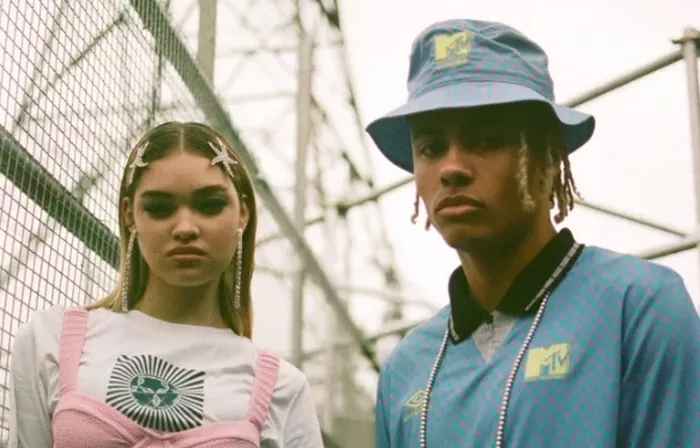The 1990s marked a pivotal era in fashion, characterized by a rebellious spirit, individualism, and a distinctive sense of effortless style. It was a time when grunge, hip-hop, minimalism, and rave culture collided, giving rise to some of the most memorable sartorial moments in modern history. Many of the brands that shaped this defining decade continue to influence fashion trends today, bridging generational gaps through timeless appeal.
Among the most iconic names of the era was Tommy Hilfiger, a brand that became synonymous with American youth culture. Sporting its signature red, white, and blue logo, Hilfiger managed to transcend style boundaries, appealing to both preppy fashion fans and the hip-hop community. Its oversized denim pieces and logo-emblazoned sweatshirts became cultural staples, frequently worn by stars like Aaliyah, Snoop Dogg, and Destiny’s Child. Even now, Tommy Hilfiger remains relevant, thanks to archive-inspired collections and influencer collaborations that channel the brand’s 90s roots.
Calvin Klein was another name that revolutionized 90s fashion with its minimalistic and provocative approach. The brand’s denim and underwear lines achieved iconic status, particularly due to unforgettable campaigns featuring Kate Moss and Mark Wahlberg. Its clean aesthetic and unisex designs resonated across gender lines, turning the “CK” waistband into a symbol of understated cool. Today, Calvin Klein continues to maintain its legacy by offering modern reinterpretations of its classic pieces.
In the realm of streetwear, FUBU—short for “For Us, By Us”—emerged in 1992 as a powerful voice for Black designers and consumers. Created in New York, the brand championed cultural pride through its oversized jerseys, baggy jeans, and bold branding. Endorsed by hip-hop legends like LL Cool J and Nas, FUBU was instrumental in bringing streetwear into the mainstream. While less visible now, the label’s influence is undeniable, having paved the way for numerous modern streetwear brands.
DKNY, the brainchild of Donna Karan, captured the fast-paced energy of New York City. Tailored yet relaxed, the brand delivered stylish, functional pieces aimed at the modern working woman. With sleek trousers, blazers, and citywear staples, DKNY blended high fashion with everyday wearability. Its logo became a statement in its own right, gracing sweatshirts, bags, and tees. DKNY remains a popular choice for urban fashion lovers seeking a mix of practicality and elegance.
Guess also made a major mark on the 90s fashion landscape with its glamorous denim campaigns and sultry styles. Known for high-waisted jeans, crop tops, and bodycon silhouettes, Guess projected an alluring edge through supermodel-fronted ads featuring Claudia Schiffer and Anna Nicole Smith. The brand’s stonewashed denim and logo-heavy designs continue to attract fans of vintage fashion and nostalgic looks.
Nautica stood out with its nautical aesthetic and sporty vibe, drawing inspiration from sailing and prep school styles. Its water-resistant outerwear, oversized fits, and bold color blocking appealed to a diverse audience, including the hip-hop scene. The brand’s fusion of performance and streetwear proved popular, and today, Nautica enjoys a resurgence among vintage collectors and 90s fashion enthusiasts.
Champion, initially known for sportswear, became a streetwear essential during the 90s. The brand’s heavyweight hoodies and iconic “C” logo found favor among skaters, athletes, and hip-hop fans, epitomizing the laid-back, comfort-focused fashion of the time. Champion has reemerged as a modern streetwear force, often teaming up with high-fashion labels such as Supreme and Off-White.
Reebok solidified its status as a 90s sportswear powerhouse with bold sneakers that bridged the gap between athletic function and eye-catching style. Popular models like the Reebok Pump and Club C gained cult followings, and the brand’s presence in basketball, aerobics, and hip-hop culture was undeniable. Reebok’s continued release of retro styles ensures its place in today’s sneaker market.
The North Face, now globally recognized for its technical outerwear, was embraced by New York’s streetwear and hip-hop scenes during the 90s. The brand’s puffers, fleeces, and windbreakers were adapted into fashion-forward street looks, blending utility with urban identity. Early collaborations with subcultures cemented its reputation, and today The North Face thrives through partnerships with fashion giants like Gucci and Supreme.
British brand Umbro, known primarily for football kits, found unexpected popularity beyond the pitch. Its sporty shorts, tracksuits, and training tops were adopted by rave culture and streetwear fans alike. Umbro’s affordability, logo-centric style, and unisex appeal made it accessible and fashionable. In recent years, the brand has returned to the spotlight through limited-edition drops and retro-inspired collaborations.
Far beyond being just a collection of bold logos and oversized jeans, the 1990s ushered in a transformation in how fashion was perceived and consumed. These iconic brands blurred the lines between mainstream and subculture, luxury and streetwear, function and flair. As the 90s revival continues, labels like Tommy Hilfiger, Calvin Klein, Champion, and The North Face are reclaiming their space in modern wardrobes, appealing to both nostalgic older fans and style-savvy new audiences. Through these enduring names, the style of a generation lives on, reminding the world that truly iconic fashion never fades.
Related Topics

